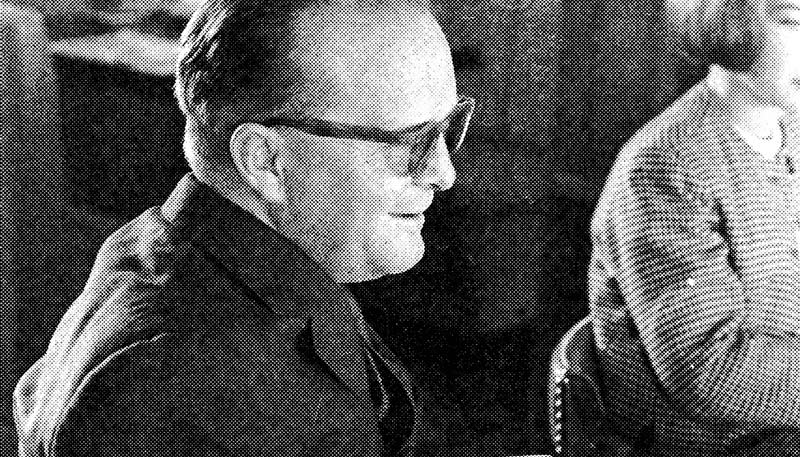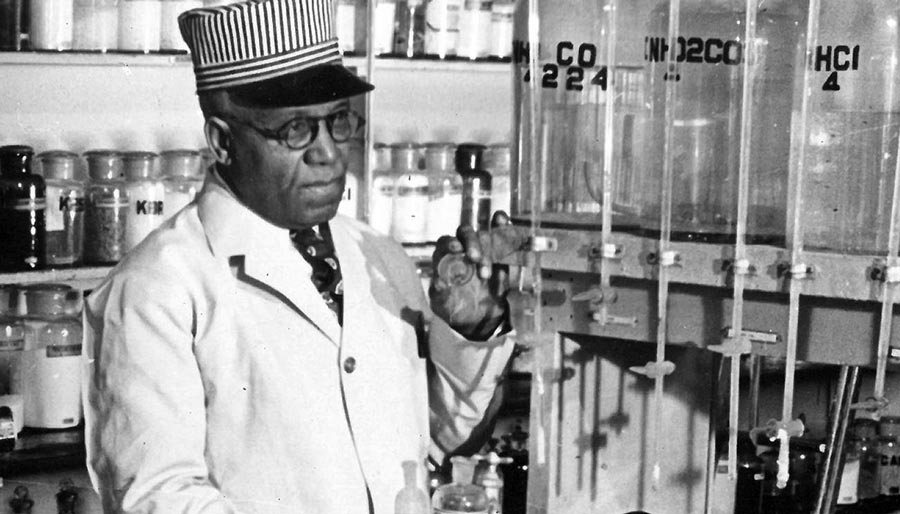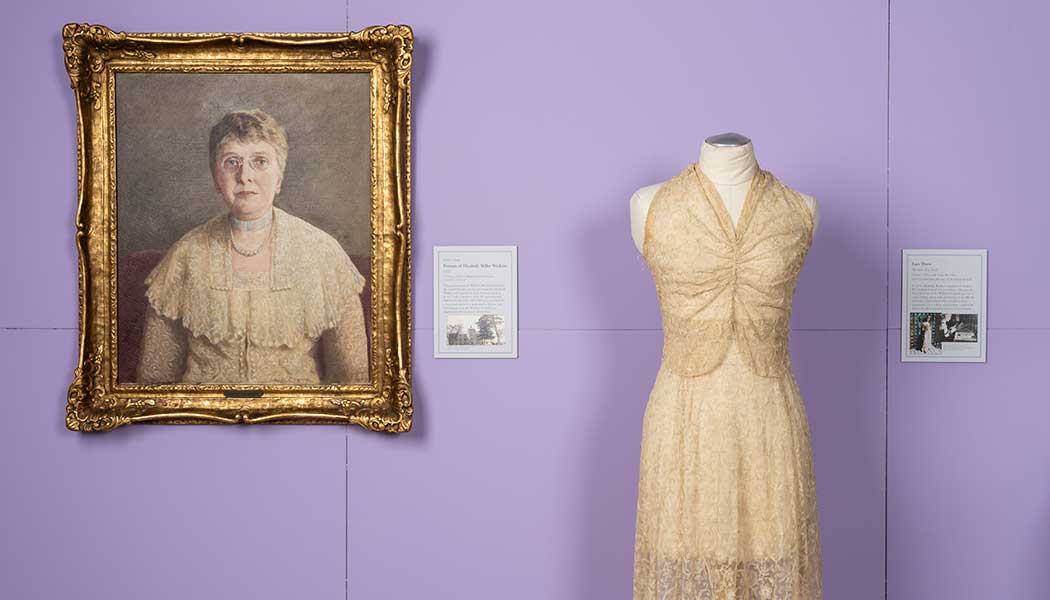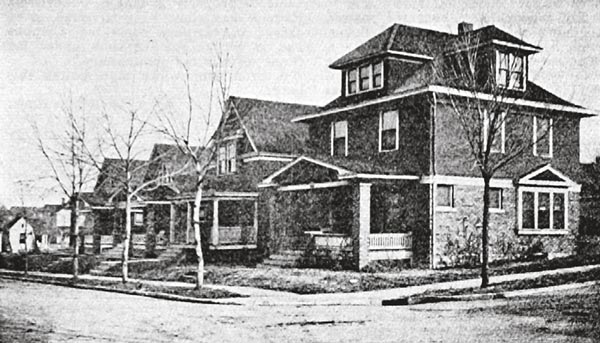Discoverer, discovered: KU alumnus Joseph W. Kennedy
‘Oppenheimer’ helps restore the lost link between KU and scientific titan Joseph W. Kennedy, co-discoverer of plutonium.
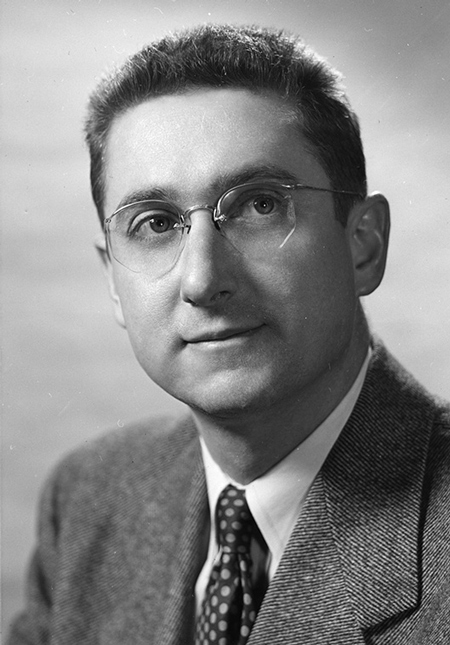
We here at Kansas Alumni—KU history nerds par excellence, if we do say so ourselves—first heard of Joseph W. Kennedy, a co-discover of plutonium, from the unlikeliest of sources: a Jan. 5 email from Troy Bronson, a young actor and senior at the University of California, Berkeley.
“Kennedy, a notable alumnus of the University of Kansas, is a figure of immense historical importance and played a critical role in scientific history as the discoverer of plutonium,” Bronson wrote. “My portrayal of Kennedy was deeply influenced by researching his time in Lawrence, a period that was instrumental in shaping his scientific career.”
Hold the phone: The character that Bronson portrayed in Christopher Nolan’s “Oppenheimer”—which won Best Picture, along with six other Oscars—was a KU alumnus who discovered plutonium?
Come again?
Not only had we never heard of him, but neither had our massive records database, which turned up no mention of any alumni named Joseph W. Kennedy. After requesting a hand search of original archives, the Office of the University Registrar confirmed Bronson’s lofty statement: Joseph W. Kennedy, g’37, graduated in June 1937 with a chemistry master’s degree.
For those of us who have spent decades researching and writing about KU history, this arrival of Joseph Kennedy into our aerie offered the rarest delight: complete surprise.
With the help of Bronson, who thoroughly researched his role, as well as a bit of overdue research of our own, we learned that Kennedy, a native of Nacogdoches, Texas, came to KU after earning his bachelor’s degree at what is now Stephen F. Austin State University in 1935.
“He was selective with the institutions that he attended, and he really wanted to go to the University of Kansas,” Bronson says. “He very much liked having everyone around a table and being very hands-on, and he probably came to Berkeley because here he found the environment that was the closest to what he had at Kansas. He knew he wanted that environment where a lot of discoveries were happening and where truly anything was possible.”
Bronson’s character does not speak in the film and appears only briefly, yet the unproven actor had to bring Kennedy to life and give him his proper due, in both the movie and history; it was not an accident that Kennedy appears troubled and brooding while sharing scenes with excited scientists who seem unaware of the implications of the project unfolding in their Berkeley labs.
Kennedy, then a 24-year-old PhD student, was credited with discovering the element plutonium in 1940 alongside Cal-Berkeley faculty giants Glenn Seaborg and Edwin McMillan—who later shared the 1951 Nobel Prize in physics—and fellow doctoral student Arthur Wahl. A social media page dedicated to the science underpinning “Oppenheimer” noted that the movie “honors the collective endeavor while rightfully crediting Kennedy as the key discoverer.”
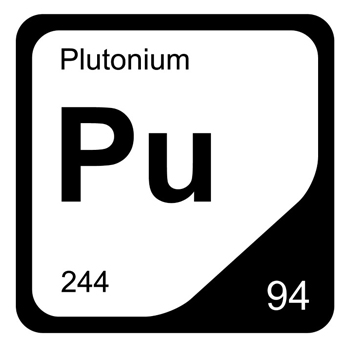
Whatever controversy might have emerged over who did what, it was apparently no concern for Kennedy, who immediately grasped plutonium’s implications. Despite Kennedy’s youth, Gen. Leslie Groves appointed him the Manhattan Project’s head of chemistry and metallurgy at the nascent Los Alamos Laboratory.
“This was the beginning of it, and Kennedy knew that,” Bronson says of plutonium’s central role in U.S. efforts to create a war-ending bomb. “He was very young, and it was, maybe, too much for his age, so I had to be able to portray that dread, all that responsibility.”
At the conclusion of World War II, Kennedy in 1945 was recruited to join the faculty of Washington University in St. Louis. He arrived in spring 1946, and, told he could hire whomever he wanted, brought along five other Los Alamos chemists. He and his team came to be known in school lore as the Los Alamos Six.
Kennedy is credited with transforming an institution then known for strong undergraduate programs into a research and graduate studies powerhouse, and is revered for opening WashU to African American graduate students and the faculty roster to scientists blackballed by McCarthy-era anti-Communist slander.
Kennedy’s accomplishments are even more remarkable given that he was only 40 when he died of stomach cancer, the same disease to which he’d lost his mother.
“One of the most rewarding experiences was the trust that Christopher Nolan put in his actors,” Bronson says of his time on the “Oppenheimer” set. “The other was a level of professionalism that I thought didn’t exist, finding yourself in an environment where everyone is truly performing at their best. I was able to feel the energy of people making something exceptional.”
Exactly, it seems safe to presume, as Joe Kennedy and his colleagues worked and lived in a rarefied realm.
Welcome back to the fold, Professor Kennedy. We regret having overlooked you and your legacy for far too long.
Chris Lazzarino, j’86, is associate editor of Kansas Alumni magazine.
Photo courtesy of Washington University Archives
/
